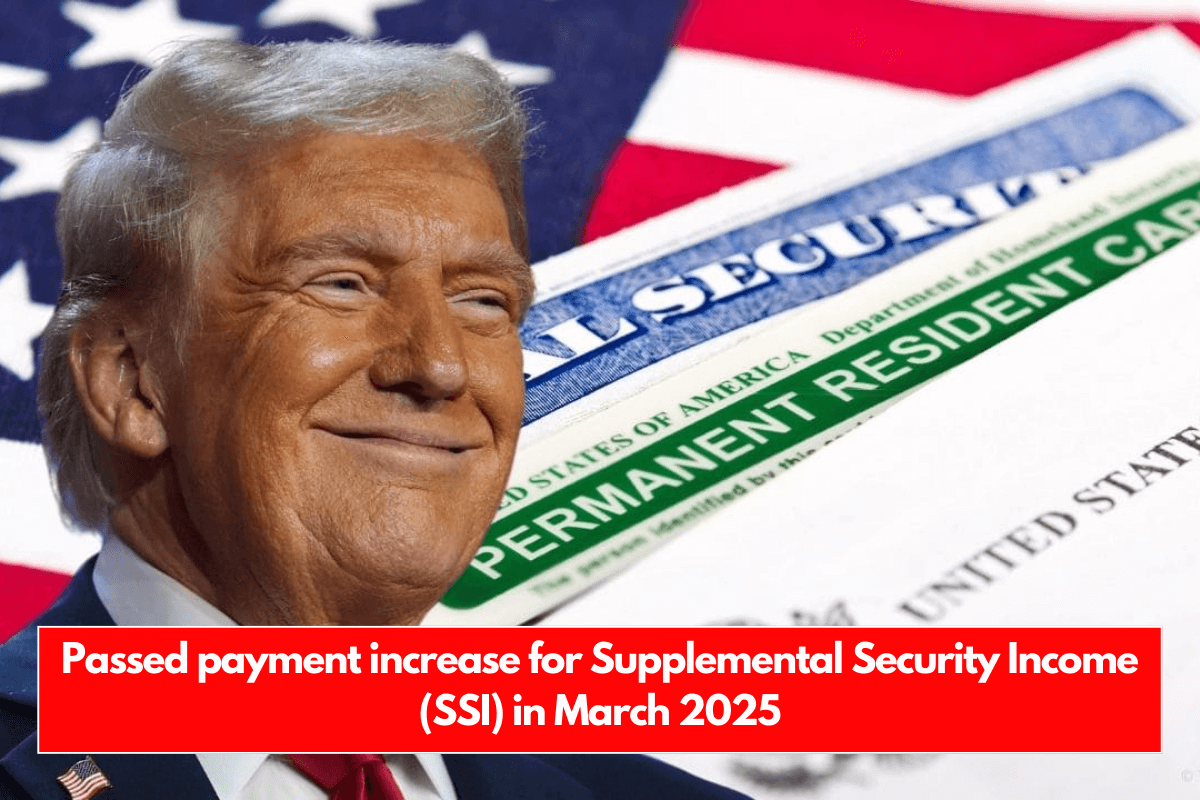The March checks for Supplemental Security Income (SSI) payments will include an increase for households in the United States. Due to a calendar irregularity, this new payment will not arrive in March as planned, but if our application is accepted, we may receive it within the month.
In this regard, the Social Security Administration will distribute Supplemental Security Income (SSI) to eligible beneficiaries, with the passed payment increase included. This type of increase is the COLA, and it will be the same as in previous months of 2025.
If you have an accepted payment of Supplemental Security Income (SSI), for the rest of 2025 you will have a higher payment than in previous years. Therefore, in the month of March you will be able to enjoy a higher payment of this benefit than in previous years. But the payment will remain the same as in January and February 2025.
When does the March Supplemental Security Income (SSI) arrive?
The truth is that the Supplemental Security Income (SSI) payment schedule for March is irregular. This benefit is usually paid on the first of each month, but March 1st will be a weekend. When we are in this situation, the SSA sends the payment on the previous working day.
As a result, we will find that on February 28, 2025, the Administration will pay a Supplemental Security Income (SSI) check with the COLA increase of $967. Without a doubt, receiving a payment of nearly $1,000 to supplement our regular benefit is extremely positive news.

Requirements to receive Supplemental Security Income (SSI) in 2025
Nonetheless, if we intend to apply for this monthly benefit, we should be aware that there are some mandatory requirements. Furthermore, if we are already receiving payments but no longer meet the requirements, we risk losing the benefit.
Thus, payments from this Supplemental Security Income (SSI) check must meet the following requirements:
- Being 65 years of age or older or having a disability.
- Having a low monthly income, as well as low economic resources.
The Social Security Administration reviews Supplemental Security Income (SSI) applications individually. This means that citizens who apply for the payment must wait for it to be accepted by the Social Security Administration before receiving it each month.
The amount we receive is determined by our income. The higher our income, the lower our monthly benefit will be. The opposite is also true: if we have a low income, we will receive a larger Supplemental Security Income (SSI) benefit.
It should also be noted that the amount received varies month to month, as our income may change, resulting in more or less money from SSI. If our income exceeds the SSA’s limit, we may no longer receive this monthly check.
